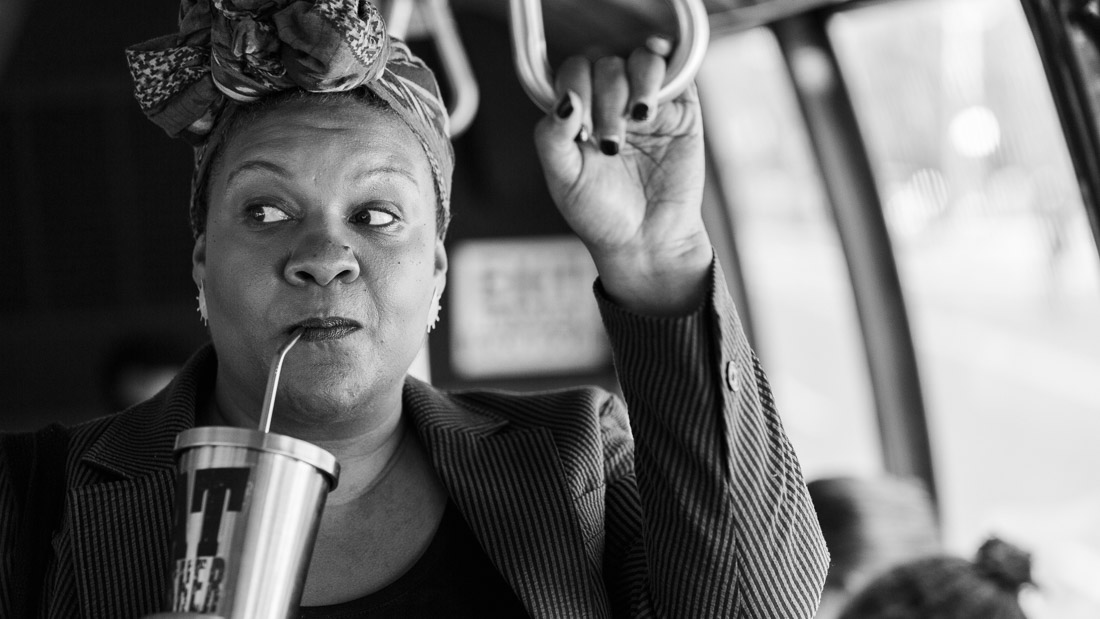
News
Pro-Palestine Encampment Represents First Major Test for Harvard President Alan Garber

News
Israeli PM Benjamin Netanyahu Condemns Antisemitism at U.S. Colleges Amid Encampment at Harvard

News
‘A Joke’: Nikole Hannah-Jones Says Harvard Should Spend More on Legacy of Slavery Initiative

News
Massachusetts ACLU Demands Harvard Reinstate PSC in Letter

News
LIVE UPDATES: Pro-Palestine Protesters Begin Encampment in Harvard Yard
‘The 40-Year-Old Version’ Is A Hilarious Exploration of Artistic Autonomy
Dir. Radha Blank — 4.5 Stars

“Think about me doing Hip Hop.”
“... Doing what to it?”
In the new Netflix film “The 40-Year-Old Version,” Radha (Radha Blank), a struggling playwright, asks if her agent and best friend Archie (Peter Kim) can envision her as a rapper. His quippy, incredulous reply reflects how most characters in the film react to Radha's sudden embrace of hip hop: Does a washed up playwright approaching 40 have any business dabbling in rap? Ultimately, the film answers this question with a resounding “yes.” “The 40-Year-Old Version” is witty and stirring, illuminating the ways we can subvert the power structures that limit artistic expression.
Radha Blank wrote, directed, produced, and starred in “The 40-Year-Old Version,” lending her name and some of her own life experiences to the protagonist. She presents the vibrant Radha as a truly dynamic character with a layered and realistic depiction of her coexistent conviction and trepidation. Her quick humor easily rouses laughs and also exposes her character’s depth. “I just want to be an artist...Mommy, please tell me what to do,” she cries as she eats ribs alone in a corner of her apartment, in a scene that strikes a chord with anyone whose creative endeavors have ever fallen short. Her struggle to find her way as an artist is further exacerbated by the fact that she’s still reeling from recently losing her mother.
Radha was once the winner of a 30 under 30 playwright’s award, but now teaches playwriting to students in Harlem because she wants to avoid writing the “poverty porn” plays that wealthy white producers love to back. This idea of poverty porn — exploiting Black struggles or perpetuating disparaging stereotypes of Black people — becomes the inspiration for the first song of her new mixtape. Adopting the moniker RadhaMUSPrime, she raps, “Yo, it’s poverty porn, you regular Blacks are just such a yawn / If I want to get on, better write me some poverty porn.” She records this with the help of D (Oswin Benjamin), a 26-year-old producer she found on Instagram. D is also her eventual love interest, and though a laidback man of few words, he is an endearing complement to Radha as he pushes her to continue with her rap career. The defiant and thought provoking “Poverty Porn” impresses him, and he sees her potential as a musician even when she doubts herself.
Although it’s set contemporaneously, “The 40-Year-Old Version” was shot on film in black and white. This stylistic element lends the movie a romantic mystique that contrasts the harsh reality it presents to viewers: “Making it” as an artist is not solely determined by talent and ambition, but by longstanding systems of inequality. When Radha takes the opportunity to have her play “Harlem Ave” produced by J. Whitman (Reed Birney), a man who exemplifies her definition of poverty porn as “the white gaze’s eroticism of Black pain,” she finds that commercial success comes at the expense of her work’s integrity.
Radha is forced to write a white character into her play about a Black couple, and a white woman is hired to direct it. (“All the working Black directors are working!” Archie says). “Harlem Ave,” a story about gentrification, continues to slip away from Radha until she’s no longer proud of what it represents. This storyline is written with a keen awareness that underscores the consequences of co-opting art and tailoring it for the white gaze. Racial representation in the media is at the forefront of cultural conversations right now, but is the artistic autonomy of Black creators a part of this discourse? Black writers may have their plays, movies, or shows produced, but how often are they coerced into “selling out” in order to get their big break?
“The 40-Year-Old Version” is able to raise these pressing questions while still maintaining its effervescent tone and emotional relatability within its characters and relationships. Archie and Radha’s relationship is one of the highlights of the film; friends since high school, they have an easy, lovable rapport. When they argue, it’s felt deeply because their friendship is depicted so authentically. Even Radha’s interactions with her neighbors have a similar sense of realism, each eccentric character a reflection of Harlem’s diverse culture.
In her directorial debut, Radha Blank made a wonderfully imaginative and powerful film, examining the intersection between artistry and Black womanhood with a careful eye. There are a myriad of things to take away from “The 40 Year Old Version,” but perhaps what resonates most lies in one of Radha’s songs, when she raps: “Fund your own vision, fill your own void, find your own voice.”
—Staff writer Jaden S. Thompson can be reached at jaden.thompson@thecrimson.com
Want to keep up with breaking news? Subscribe to our email newsletter.
